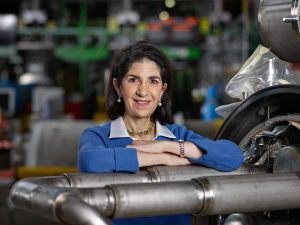
Fabiola Gianotti
CERN
France
EIROforum Conference
This conference will take place at EMBL Heidelberg, with a live streaming option for virtual participants free of charge. Proof of COVID-19 vaccination or recovery is required for on-site attendance. Please see EMBL’s COVID-19 terms and conditions.
Workshop registration is available only to EIROforum members. Please note the workshop on 27 April is an on-site-only event and contact Iva Gavran for more information.
At this conference, we will present cutting edge data science and AI from the EIROforum alliance of European scientific infrastructures, and explore how these infrastructures can contribute to scientific progress with societal and economic impact. The conference is aimed at scientists across our disciplines, science policymakers and science journalists.
From understanding the universe to tracking how viruses infect humans, large scale scientific data needs to be generated, analysed and distributed for science.
The EIROforum alliance of European scientific infrastructures, CERN, ESO, ESA, EMBL, ESRF, IIL, EuXFEL and EuroFusion invite you to our first conference focusing on Grand challenges in AI and data science.
These organisations have delivered the infrastructure and science that have made some of humanity’s greatest leaps in understanding over the last 50 years – from sub-atomic particles through protein structures to planets orbiting other stars.
This needs increasingly innovative machine learning and AI in both the running of the complex machines and systems in the infrastructure and in the complex analysis and distribution of data from these infrastructures.
Open data and use of AI
Importance of scientific infrastructure for delivering science
The European Intergovernmental Research Organisation forum (EIROforum) brings together eight of Europe’s largest research organisations (EMBL, ESA, ESO, CERN, ILL, XFEL, ESRF and Eurofusion) in a mission to combine the resources, facilities and expertise of its member organisations to support European science in reaching its full potential. The organisation provides the infrastructure to examine the natural world from sub-atomic particles to cosmology, with all the mysteries of life, light and materials included.

CERN
France
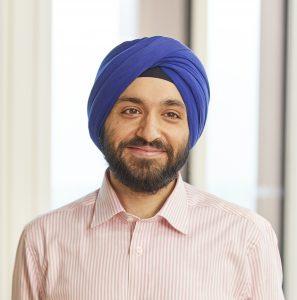
DeepMind
UK
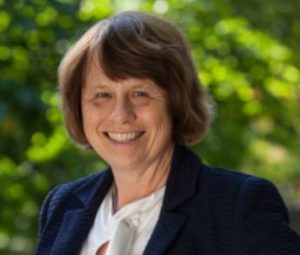
Leiden Observatory
The Netherlands
European Synchrotron Radiation Facility
France
EUROfusion
Germany
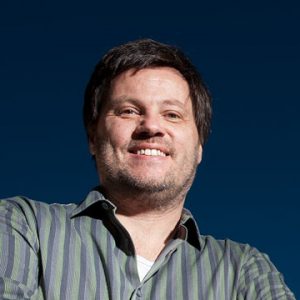
European Southern Observatory
Germany
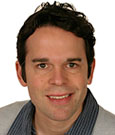
EMBL Heidelberg
Germany
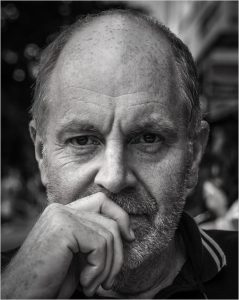
European Space Agency
The Netherlands
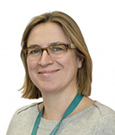
EMBL-EBI Hinxton
UK
Institut Laue Langevin
France
European Synchrotron Radiation Facility
France

CERN
France
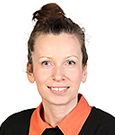
Course and Conference Officer
EMBL Heidelberg
Germany
All times in the programme below are shown as the time in Europe/Berlin.
Please note the programme is subject to change and will be regularly updated.
| Time | Speaker |
|---|---|
| 08:30-09:30 | Arrival and Registration |
| 09:30-10:00 | Opening remarks and welcome addresses Francesco Sette – Director-General, ESRF, France Edith Heard – Director-General, EMBL Heidelberg, Germany Helmut Schober – Director-General, ESS, Sweden Ewan Birney – Deputy Director-General of EMBL, EMBL-EBI Hinxton, UK |
| 10:00-10:30 | Introductory session: Fundamental science for society Chair: Ewan Birney – EMBL-EBI Hinxton, UK Fundamental science for society: CERN as an example Fabiola Gianotti – Director-General CERN, France (Talk will be live-streamed and available on demand in Video Library until 12 May 2022) |
| 10:30-11:00 | Introductory session: Fundamental science for society Q&A and open discussion |
| 11:00-11:30 | Coffee break |
| 11:30-13:00 | Session 1: Open data and use of AI in science |
| 11:30-12:00 | Chair: Mark McCaughrean – ESA, The Netherlands Leveraging AI for Science Pushmeet Kohli – Head of Research DeepMind, UK (Talk will be live-streamed and available on demand in Video Library until 12 May 2022) |
| 12:00-13:00 | Chair: Ewan Birney – EMBL-EBI, UK Panel discussion with EIROforum members Paolo Mutti – ILL, France Andy Yates – EMBL-EBI, UK Maurizio Pierini – CERN, France Jo McEntyre – EMBL-EBI, UK (Panel will be live-streamed and available on demand in Video Library until 12 May 2022) |
| 13:00-14:00 | Lunch break |
| 14:00-16:30 | Session 2: Importance of scientific infrastructure for delivering science |
| 14:00-14:30 | Chair: Vincent Favre-Nicolin – ESRF, France The James Webb Space Telescope and the next decade of discoveries Ewine F. van Dishoeck – Leiden Observatory, The Netherlands (Talk will be live-streamed and available on demand in Video Library until 12 May 2022) |
| 14:30-15:30 | Session 2 (continued) Chair: Jan Korbel – EMBL Heidelberg, Germany Panel discussion with EIROforum Director-Generals Ewan Birney – Deputy Director-General, EMBL-EBI, UK Robert Feidenhans’l – Director-General, European XFEL, Germany Francesco Sette – Director-General, ESRF, France Enrica Porcari – CERN, France Duarte Borba – Eurofusion, Germany Xavier Barcons – Director-General, ESO, Germany (virtual) Paul Langan – Director-General, ILL, France (virtual) (Panel will be live-streamed and available on demand in Video Library until 12 May 2022) |
| 15:30-16:00 | Coffee break |
| 16:00-16:30 | Chair: Vincent Favre-Nicolin – ESRF, France Lightning talks by EIROforum members Bruno Merin – ESA, The Netherlands Alexandra Pacureanu – ESRF, France (Talk will be live-streamed and available on demand in Video Library until 12 May 2022) |
| 16:30-17:00 | Closing remarks Jean-Eric Paquet – Director-General of DG Research and Innovation of the European Commission (virtual) (Talk will be live-streamed and available on demand in Video Library until 12 May 2022) |
The EIROforum workshop day is an on-site-only event and available only to individuals from EIROforum member institutions and not to external participants. Please contact Iva Gavran for registration for the workshop day.
| Time (Europe/Berlin) | Speaker | Location |
|---|---|---|
| 10:00-11:00 | Imaging centre tours | ATC Registration Desk |
| 10:30-11:30 | Registration and coffee | ATC Registration Desk / Foyer |
11:30-13:30 | Parallel workshops: AI and machine learning in automation within scientific infrastructures Open Access Data, User communities and citizen science Career paths and training in scientific infrastructures | ATC Auditorium Operon Large Operon small |
| 13:30-14:30 | Lunch break | ATC Foyer |
14:30-16:30 | Parallel workshops: AI and machine learning in automation within scientific infrastructures AI and machine learning in scientific analytics Open Access Data, User communities and citizen science | ATC Auditorium Operon Large Operon Small |
| 16:30-17:00 | Coffee break | ATC Foyer |
17:00-19:00 | Parallel workshops: AI and machine learning in scientific analytics Open Access Data, User communities and citizen science Career paths and training in scientific infrastructures | ATC Auditorium Operon Large Operon Small |
| 19:00-20:30 | Dinner | Canteen |
| 20:30-21:30 | Networking drinks | ATC Foyer |
Participants will be able to attend the following 4 workshops:
Chaired by Christian Tischer (EMBL), Mutti Paolo (ILL), Natalie Behara (ESO), Verena Kain (CERN) and Danilo Ferreira de Lima (EuXFEL)
This workshop will focus on the use of machine learning and AI in the control, operations and automation of scientific instruments and infrastructures, allowing for better, more cost-effective innovations in data gathering and usage.
A talk from representatives from several EIROforum members will be followed by a discussion to identify commonalities and differences.
Session 1:
| Time | Speaker |
|---|---|
| 11:30-11:45 | Introduction to workshop |
| 11:45-12:15 | Oleksii Turkot, EuXFEL and Sarlota Birnsteinova, EuXFEL Selected applications of Machine Learning at the EuXFEL The European XFEL (EuXFEL) collects terabytes of data and requires complex machinery to process it and guarantee that the data stored and available for the users have a high quality. Additionally, the EuXFEL allows for a wide range of experiments, which change every few days, using different techniques and detectors. It is therefore critical to ensure the high quality of the data collected online, by taking fast decisions based on the current data collected and the experimental setup. By optimizing the data quality available to the users online, the users may also adapt their setup accordingly if needed. This talk presents a selection of methods that take advantage of Machine Learning to optimize the EuXFEL operations, with the focus on reinforcement learning and unsupervised learning techniques, which can apply or suggest on-the-fly corrections to the online analysis pipeline. Contributors: Oleksii Turkot, Sarlota Birnsteinova, Danilo Ferreira de Lima, Arman Davtyan, Patric Vagovic, Fabio Dall’Antonia, Luca Gelisio |
| 12:15-12:45 | Francesco Maria Velotti, CERN Automation and Machine Learning Efforts for CERN’s accelerators To deal with the complexity of hundreds to thousands of tunable parameters at CERN’s largest accelerators, a modular and hierarchical control system was put in place. Low-level hardware parameters are combined into higher-level accelerator physics parameters defined by theory and simulation. For effects not fully captured by the models in the control systems, high-level feedforward systems are available. This abstraction allowed us to deterministically operate machines such as the LHC. Still, not all effects are fully under control with this approach and shift crews are required to manually tune with lower intensity after configuration changes in the CERN lower energy machines or limit drastically the number of configuration changes as applied in the LHC. Machine Learning techniques allow to model hysteresis among other effects, learn online models from online data, interpret complex data from beam diagnostics systems and speed up compute-heavy data analysis of online data or simulations to use them online in the control room. All this can be used for optimal control of today’s accelerators. For this to become true, ways of how to integrate machine learning in the control system of the control room and making ML plug & play must be prepared in addition to sufficient expertise with ML techniques. This talk will summarise the results of ML and other advanced algorithms of recent years for optimising the performance of CERN’s accelerators. A tentative vision for the next steps in terms of automation in CERN’s accelerator control rooms will also be given. |
| 12:45-13:15 | Ignacio Toledo, Joint ALMA Observatory, ESO Provisioning a ML/AI infrastructure for ALMA operations: build from scratch or collaborate with the industry Operating fully functional observatories like ALMA requires the use of cutting-edge technologies and state-of-the-art engineering practices. However, just 20 years ago most of the ground-based observatories worked as laboratories, and thus our field is in the process of learning and adopting new practices to operate the “big data factories” we have today. One important aspect is having the ability to make decisions based on data. We need to answer questions like “how are we doing”, “why are things going well or bad”, “what is the reason for success or for the failure”, “how can we improve the success rates or prevent failures”, etc. to make informed decisions. In some cases, we also need to automate those decisions as well. This decision-making process, critical for operations, requires the use of a data science. Four years ago, ALMA started a collaboration with the industry to provision a modern data stack that would allow us to use our available data (not only scientific) and our skills to apply ML/AI to make better decisions. This has allowed us to understand what were our weaknesses, which are our strengths and what challenges we must still solve. We will share with the audience what we have learned, what we have achieved and what is the road still ahead, along with our own views between building a solution in-house or provisioning an external solution. Leonardo Blanco, ESO Moving beyond traditional KPIs: a data driven approach for improved system performance |
Session 2:
| Time | Speaker |
|---|---|
| 14:30-15:00 | Martin Boehm, ILL Autonomous Experiments in Inelastic Neutron Scattering Autonomous experiments rely on modern machine learning algorithms for steering experimental data acquisition in a multidimensional parameter space without human intervention. Autonomous data acquisition becomes increasingly important for the execution and analysis of ever more complex experiments in many different scientific and industrial domains [1]. In autonomous learning, algorithms learn, from a comparably little amount of input data, a strategy to explore the multidimensional parameter space in an efficient way. Gaussian Process Regression (GPR) [2] is one of the most frequently employed algorithms for autonomous experiments, providing a quick, non-parametric and robust approximation and uncertainty quantification method. GPR can be extremely powerful, when combined with a point-by-point data acquisition method, such as in the case of classical triple-axis spectroscopy (TAS). TAS is known since the 1960ies [3] as efficient method for exploring the scattering function S(Q,) in restricted regions of the neutron energy transfer and momentum Q space, essentially relying on so-called const- Q (or const- scans. With the autonomous approach, underpinned by GPR, we abandon now the traditional way of TAS and explore new strategies with the aim of capturing the scattering function with a minimum amount of measuring points and, hence, measuring time. We used the GPR based algorithm gpCAM [4-6] in a series of test measurements on the cold TAS ThALES (@ILL, Grenoble), where gpCAM took control over the measurement process, without any intervention of the instrument scientists. Completely ‘agnostic’, i.e. without any prior information on the physical model or expected signal of the measured sample, the algorithm explored various accessible regions in the sample’s reciprocal space and reconstructed the signal with a strongly reduced number of total measuring points compared to a conventional ‘grid’ scanning technique (i.e. const-Q, const-E scans). We propose to present this new experimental procedure and compare it to traditional data acquisition on triple-axis spectrometers. We show a perspective for the future experimental possibilities and how the scientific measurements could evolve in conjunction with modern algorithms. Contributors: M. Boehm, M. Noack, T. Weber, Y. LeGoc, J.Sethian and P. Mutti |
| 15:00-15:30 | Aliaksandr Halavatyi, EMBL Fully automated control of complex microscopy experiments of biological samples Over the last decades, EMBL has been applying and developing techniques to gather experimental data about biological objects at different scales. Among all available methods, microscopy methodologies have been evolving at high speed leading to the establishment of many imaging modalities targeting different biological scales. However, the application of such technologies to solve the emerging biological questions is often associated with various challenges, including the time-consuming need to identify specific species at specific biological states and locate specific anatomical locations in complex and heterogeneous sample preparations. To tackle these challenges the EMBL core facilities and labs established approaches to control advanced imaging experiments using fully automated computational methods. With this “Adaptive Feedback Microscopy,” framework target objects (e.g. organelles, cells or multicellular structures) are automatically identified and subsequently automatically imaged in the respective high-content modality. The established tools can couple commercial microscopes to automated open-source (machine learning-based) image analysis routines defined by the researchers or with the assistance of service staff. Contributors: Manuel Gunkel, Marco Raffaele Cosenza, Martin Schorb, Sebastian Koehrer, Yannick Schwab, Thomas Schneider, Jose Marguez, Jim Swoger, Alvaro Crevenna, Sanjana Singh, Joanna Zukowska-Kasprzyk |
| 15:30-16:30 | Panel discussion on SciOps AI infrastructure, instrument diagnostics and synergies |
Chaired by Alexandra Pacureanu (ESRF), Anna Kreshuk (EMBL), Shervin Nourbakhsh (ILL), Felix Stoehr (ESO), Maurizio Pierini (CERN) and Arman Davtyan (EuXFEL)
This workshop will focus on the analysis of scientific data from instruments using machine learning and AI with examples including Image analysis from telescopes and microscopes, DNA sequence analysis and the analysis of high energy physics data, automated 3D volume segmentation, ‘big data’ approaches (many datasets).
A talk from representatives from several EIROforum members will be followed by a discussion to identify commonalities and differences.
Session 1:
| Time | Speaker |
|---|---|
| 14:30-14:40 | Introduction to workshop |
| 14:40-15:10 | Jan Kieseler, CERN Deep Learning for Particle Physics: from event reconstruction to data analysis |
| 15:10-15:40 | Anna Kreshuk, EMBL Overview talk |
| 15:40-16:00 | Felix Stoehr, ESO Overview talk |
| 16:00-16:30 | Ewen Bellec, ESRF Crystal defect classification from diffraction patterns Alexandra Pacureanu Machine learning for 3D X-ray bioimaging at nanoscale |
Session 2:
| Time | Speaker |
|---|---|
| 17:00-17:30 | Felix Brausse EuXFEL, Dealing with Data at European XFEL: Learning Algorithms for Data Reduction, Automated Analysis, and Accelerated Discovery |
| 17:30-18:00 | Elisa Rebolini ILL, Machine learning in neutron physics |
| 18:00-19:00 | Panel discussion |
Chaired by Andy Yates (EMBL-EBI), Stefan Roiser (CERN), Gaitee Hussain (ESA), Christian Stephan (ESO) and Elizabeth Humpreys (ESO)
This workshop will focus on discussions of career paths for scientific engineers, data scientists and other infrastructure scientists.
Session 1: On training schemes and practices within EIROforum
Staff development and training are key to ensuring productive projects as these allow staff to acquire new skills and knowledge that both help personal development and drive projects forward. These staffs come to our members at different stages of their careers including those just starting and those transitioning to another field. This session looks towards each EIROforum member to describe the methods and schemes they offer to help train staff in both technical and soft skills. One possible outcome of this session is the setting up of a central resource of training courses, materials and methods that can be used by all EIROforum members and beyond.
Mission statement
To gain a shared understanding of each forum member’s current training practices and to discuss steps towards sharing resources & practices amongst members.
| Time | Speaker |
|---|---|
| 11:30-11:35 | Introduction |
| 11:35-11:50 | Sebastian Lopienski, CERN Training activities at CERN & HEP |
| 11:50-12:05 | Eleni Athanasiadou, ESA Training and Learning at ESA |
| 12:05-12:20 | Rone Pawson & Andy Yates, EMBL Training and staff development at EMBL |
| 12:20-12:35 | Tanja Ninkovic & Andrew McCarthy, EMBL ARISE |
| 12:35-13:20 | Panel discussion |
| 13:20-13:30 | Wrap-up and close |
Session 2: Career development frameworks
Traditional career development is a self-starting activity. Those who are interested in their development make steps to drive it forward. For many though the skills, competencies and behaviours of roles within their organisations can be unclear and create a barrier to progression. This session will first review an existing development framework, track how it was created and how it is employed. We would then look to other EIROforum members to also present their own frameworks where they exist. The session aims to inform EIROforum members who do not have development frameworks how they might start the process of creating one.
Mission statement
Understand what is considered mature methods to help staff at EIROforum members develop.
| Time | Speaker |
|---|---|
| 17:00-17:25 | Benjamin Salignat, CERN CERN “benchmark jobs” |
| 17:25-17:50 | Andy Yates, EMBL-EBI Developing and deploying a competency framework at EMBL-EBI |
| 17:50-18:40 | Wider discussion |
| 18:40-19:00 | Wrap-up, discussion points, close |
Chaired by Jo McEntyre (EMBL), Erwan Le Gall (ILL), Andy Gotz (ESRF), Enrica Porcari (CERN), Pär Strand (EUROfusion), Martino Romaniello (ESO), Fabio Dall’Antonia (EuXFEL) and Bruno Merin (ESA)
This workshop will focus on how do data infrastructure deliver/share data and enable further analysis by both machine learning and AI techniques by a wide range of users? How is data reuse enabled? Training software scientists in cloud/remote interfaces and ML algorithms. Public access and usage of data, delivery of open data to scientists and therefore citizens.
A talk from representatives from several EIROforum members will be followed by a discussion to identify commonalities and differences.
Session 1:
| Time | Speaker |
|---|---|
| 11:30-12:00 | Andy Götz, ESRF, Overview talk |
| 12:00-12:30 | Alexander Kohls, CERN, Overview talk |
| 12:30-13:00 | Shaun de Witt, Eurofusion, Overview talk |
| 13:00-13:30 | Martino Romaniello, ESO, Overview talk |
Session 2:
| Time | Speaker |
|---|---|
| 14:30-15:00 | Fabio Dall’Antonia, EuXFEL, Overview talk |
| 15:00-15:30 | Jo McEntyre, EMBL, Overview talk |
| 15:30-16:00 | Erwan le Gall, ILL, Overview talk |
| 16:00-16:30 | Bruno Merin, ESA, Overview talk |
Session 3:
| Time | Session |
|---|---|
| 17:00-18:30 | Panel discussion on Identifying commonalities and Points of synergy Panel moderator: Carla Oliveira, EMBL-EBI |
On-site Registration Fees include admission, conference materials, COVID-19 safety measures, meals and coffee breaks. Participants are expected to book and pay their own accommodation and travel expenses.
| On-site Academia | € 50 |
| On-site PhD Student | € 50 |
| On-site Industry | € 60 |
Virtual Participation is free of charge and includes access to all of the talks (live-streamed and on-demand) and the facility to submit questions.
NO visa support letters will be issued until payment of the registration fee is confirmed.
Accredited journalists may be eligible to register for complimentary registration. Registrants may be required to provide accreditation or equivalent proof of press membership after registration. Please contact Iva Gavran for more information.
Registration will be on a first-come-first-served basis. Your place can only be confirmed after payment of the registration fee. If you are added to our waiting list, please consider taking advantage of our offerings to participate virtually.
On-site participants: Types of payments accepted are international bank transfers and credit card payments.
Accommodation is not included in the conference registration fee.
As further changes in our events are possible due to COVID-19, you should book flights, trains and hotels with flexible options and favourable cancellation conditions.
The hotels below have rooms on hold for participants until 26 March, in some cases at special rates. Please quote the booking code EIR22-01 and confirm the exact price of the room with the hotel directly.
Conference shuttle buses are free of charge for participants, and depart from designated bus stops near the hotels to EMBL and back, mornings and evenings.
The bus stops for this conference are:
View Conference shuttle bus stops and hotels in a larger map. Please note that not every bus stop will be used for every event.
Address: EMBL, Meyerhofstraße 1, 69117 Heidelberg, Germany. For further information on getting to EMBL Heidelberg visit Public Transportation to the Venue. For information about accommodation and local transportation please refer to the FAQ page.
All meals and coffee breaks are included in the registration fee. Our catering staff will prepare a wide variety of vegetarian meals, meat and fish dishes, soups, pasta, fresh fruit and vegetables, as well as a variety of desserts.
Please wear your badge at all times when serving yourself.
No food or drinks are allowed in the auditorium.
There are lockers available next to the stairs leading down into the Auditorium. You will find some of those equipped with sockets to charge your smartphone/tablet etc.
In most places, the electricity is 220 volts AC (50 cycles). An adaptor and a plug that fits the German socket may be needed for your appliances/laptop (i.e. American, Japanese, etc.). A USB charging station for electronic devices is available at the registration desk.
EMBL Merchandise is available on Mon – Thu (9 am – 12 pm). If you are interested in purchasing an EMBL souvenir (products presented in the glass display in the registration area), please ask at the registration desk for more information.
Please read EMBL’s COVID-19 terms and conditions for events.
Do not smoke in any EMBL building.
Eating and drinking are prohibited in the Auditorium and all laboratories.
Do not enter any restricted areas or the laboratories unless instructed to do so.
If first aid is required …
In case of fire …
Beyond first aid…
Please remember to bring your own medication, if needed, to the conference. Note that the next pharmacy is a 4-minute drive from the EMBL, but for many medications, you will be required to see a doctor to get a prescription.
Ensure in advance that your medical insurance will cover you during your visit in the event that you do need to see a doctor while in Heidelberg. In any case, the EMBL Course and Conference Office will assist you to get to the pharmacy and a doctor of your choice if necessary.
Wi-Fi is available everywhere on the premises (no password required), just log on to ATC-Guest. The eduroam network (secure, worldwide roaming access service developed for the international research and education community) is also available.
‘’Lost and Found’’ are kept at the registration desk until the end of the conference.
There are lockers available on-site to store your luggage, which require a 2 EURO coin to operate. There is another luggage room on level E0, which is free to use but remains unlocked during the conference.
There is a nursing room available in the ATC Rooftop Lounge on level A29.
During the conference, an EMBL Photographer may be taking photographs. If you would not like to appear in these, please inform the photographer or a member of the Course and Conference Office.
We can help print your boarding passes/train tickets. Please send it to events@embl.de and collect your print-outs at the registration desk.
There is a room for prayer, mediation and yoga located on level E0 behind the Auditorium. Please be respectful of other participants using the room.
A variety of activities in Heidelberg can be found on this website: www.heidelberg-marketing.com
During the event, we provide conference shuttle busses to and from EMBL. In addition, there is the public bus 39A that serves the EMBL campus and taxis can be easily booked at any time. Information on the conference shuttle busses can be found on the individual event website and more detailed information on travelling to EMBL can be found on our Travel Information page.
| English | German |
|---|---|
| Hello | Hallo |
| Goodbye | Auf Wiedersehen |
| Good morning | Guten Morgen |
| Good afternoon | Guten Tag |
| Good evening | Guten Abend |
| Good night | Gute Nacht |
| I’m sorry | Tut mir leid |
| Excuse me… | Entschuldigen Sie |
| How are you? | Wie geht’s? |
| I’m fine thanks. And you? | Mir geht es gut , danke, und dir/Ihnen? |
| What is your name | Wie heisst du? Wie heissen Sie? |
| My name is | Ich heisse |
| Do you speak English | Sprechen Sie Englisch? |
| I don’t understand | Ich verstehe nicht |
| Please speak more slowly | Können Sie bitte langsamer sprechen |
| Thank you | Danke schön |
| Where is the toilet? | Wo ist die Toilette? |
| Please call me a taxi | Bitte rufen Sie mir ein Taxi |
| How do I get to….? | Wie komme ich zum/zur…..? |
| A beer/two beers, please | Ein Bier/zwei Bier bitte |
| A glass of red/white wine please | Ein Glas Rot/Weisswein bitte |
| The menu, please | Die Speisekarte, bitte |
| Is there a local speciality? | Gibt es eine Spezialität aus dieser Gegend? |
| I’m Vegetarian | Ich bin Vegetarier |
| It was delicious | Es war hervorragend |
| The bill, please | Die Rechnung, bitte |
| I have a headache | Ich habe Kopfschmerzen |
| I have a sore throat | Ich habe Halsschmerzen |
| My stomach hurts | Ich habe Magenschmerzen |
| I’m allergic to | Ich bin allergisch gegen |
| I need a doctor who speaks English | Gibt es einen Arzt, der Englisch spricht? |
We are using an event platform for this conference. More information about the platform will be shared ahead of the conference.
Additional information can be found in our Code of Conduct.
It is important to stay healthy and move around, especially when you are attending an event virtually. We have put together a few coffee break stretches and yoga videos in the conference platform for you to enjoy during the event.
Please use the Q&A function in the event platform.
If you have any other questions, you can go to the Help Desk in the event platform. Click on ‘more’ on the top menu and click Help Desk.
The programme is planned based on the Europe/Berlin time zone, unless otherwise stated. Please take your time zone into consideration when planning your attendance.
Only FFP2 masks are allowed for indoors use and must be worn during the whole event (except while eating or drinking during the breaks).
Proof is accepted in paper or digital form, provided it meets the criteria listed under points 1, 2 and 3. Photographs of paper documents do not count as valid digital proof for the purposes of checks by the transport company or by the police authorities conducting border controls. Digital documentation needs to have been issued electronically by the authorised issuer and transmitted electronically to the authorised holder.
Please note that these are general requirements pursuant to the Coronavirus-Einreiseverordnung. For a digital COVID certificate in line with the EU Regulation on the EU Digital COVID Certificate, additional requirements may have to be met. Further information can be found on the Coronavirus: Frequently Asked Questions website of the German Federal Ministry of the Interior and Community
Regardless if you are coming from an EU country please check, please check the Paul Ehrlich Institute website for recognised vaccines to see if your vaccination status is considered valid in Germany. You will find information such as which vaccines (and combinations) are approved, the number of doses required for a complete vaccination protection and the length of time that must pass after vaccination.
The test to prove the previous infection must have been carried out by laboratory diagnostics using nucleic acid detection (PCR, PoC-PCR or other methods of nucleic acid amplification technology). At least 28 days ( but no more than 90 days) must have passed since getting a positive test. Information on recovery can be found (in German) on the Robert Koch Institute website.
A negative rapid antigen test not older than 24 h or PCR test not older than 48 h is required to access the event.
We advise all participants to take a COVID-19 test before the event even if they are fully vaccinated. It is not possible to get a certified COVID-19 test while on site at EMBL. However Professional testing stations are readily accessible at many convenient locations throughout Heidelberg.
These testing stations offer lateral flow antigen tests that are free of charge, and on a ‘walk-up’ basis for all, including visitors. Results and certificates are sent by email, within approximately 20 minutes.
Please note, some testing stations offer PCR tests as well, however these require a fee which is to be paid by the participant.
As of 1 February 2022, the validity of vaccination certificates in Germany is 270 days (roughly 9 months), if no booster vaccination has been administered after a completed basic immunisation.
The validity of proof of recovery in Germany is 90 days (roughly 3 months). At least 28 days must have passed since getting a positive test.
You only need to register if you are arriving from a high-risk area. As at 12 April 2022, nowhere was considered a high-risk area by Germany. The current list of high-risk areas is on the Robert Koch Institute website.
If you do need to register, do this at the travel portal (www.einreiseanmeldung.de) before entering the country. You must carry the confirmation with you, but you do not need to quarantine as long as you upload your proof of vaccination or recovery when registering. You can find additional information on the obligation to register and exemptions in the FAQs on Digital Registration on Entry, the obligation to furnish proof and quarantine on entry.
Participants travelling from a non-EU country, who therefore have no access to a European Union Digital Covid Certificate (EUDCC), will be granted access to events upon providing the same written proof they used to enter Germany, which should be a verifiable proof of vaccination / recovery that meets the validity requirements in Germany (please see previous questions).
Please note that Baden-Württemberg state accepts only a digitally verifiable proof for the 2G rule such as a QR code. The primary means of verifying COVID vaccination status in Germany is through the “EU Digital Covid Certificate”. This can be obtained from the local pharmacies by showing them your vaccination papers together with an ID document. The pharmacy will give you the printouts which you can then enter into a mobile application ( Corona-Warn-App).
Local restrictions change depending on the current pandemic situation. At the moment, the measures have significantly eased, however, mask wearing is obligatory in public transportation and (although rarely) you might see signs with admittance rules that will mention 2G or 3G.
A negative rapid antigen test not older than 24 h or PCR test not older than 48 h is required as a test. Please bring your CovidPass and ID wherever you go and make sure to have enough FFP2 masks. Additionally please find here the current local Public transportation requirements (in German).
Information on the COVID measures and travel restrictions in place in European countries can be found on the following websites: https://www.auswaertiges-amt.de/en/coronavirus/2317268 and https://reopen.europa.eu/en. These websites also contain information on what personal information and documents you will need to have with you to travel.
Date: 28 Apr 2022
Location: EMBL Heidelberg
Deadline(s):
Registration (On-site): Closed
Registration (Virtual): Closed
Organisers:
Contact: Iva Gavran